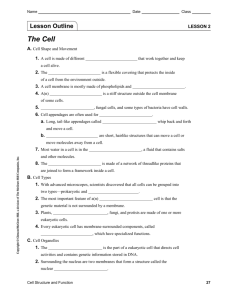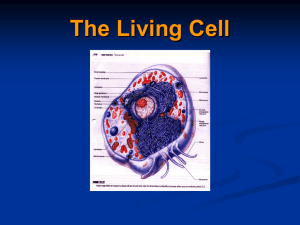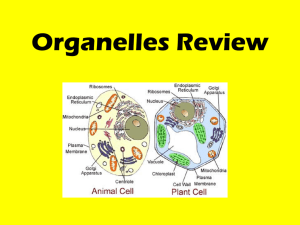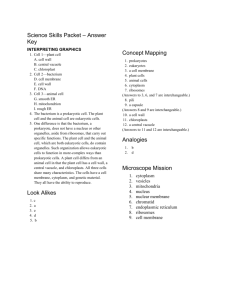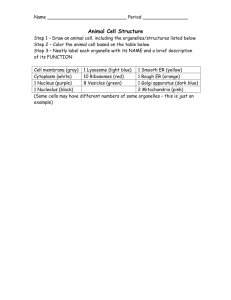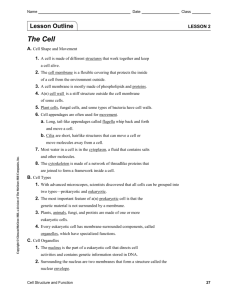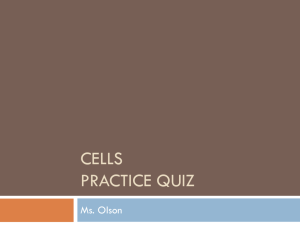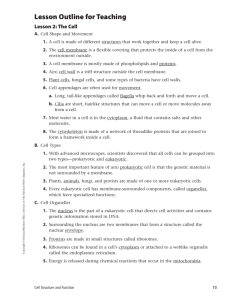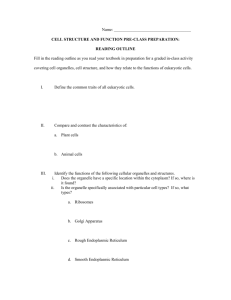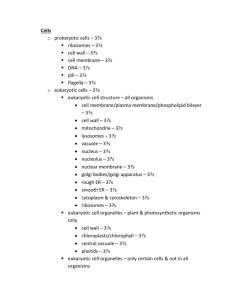Cell Quiz 1 Study Guide
advertisement
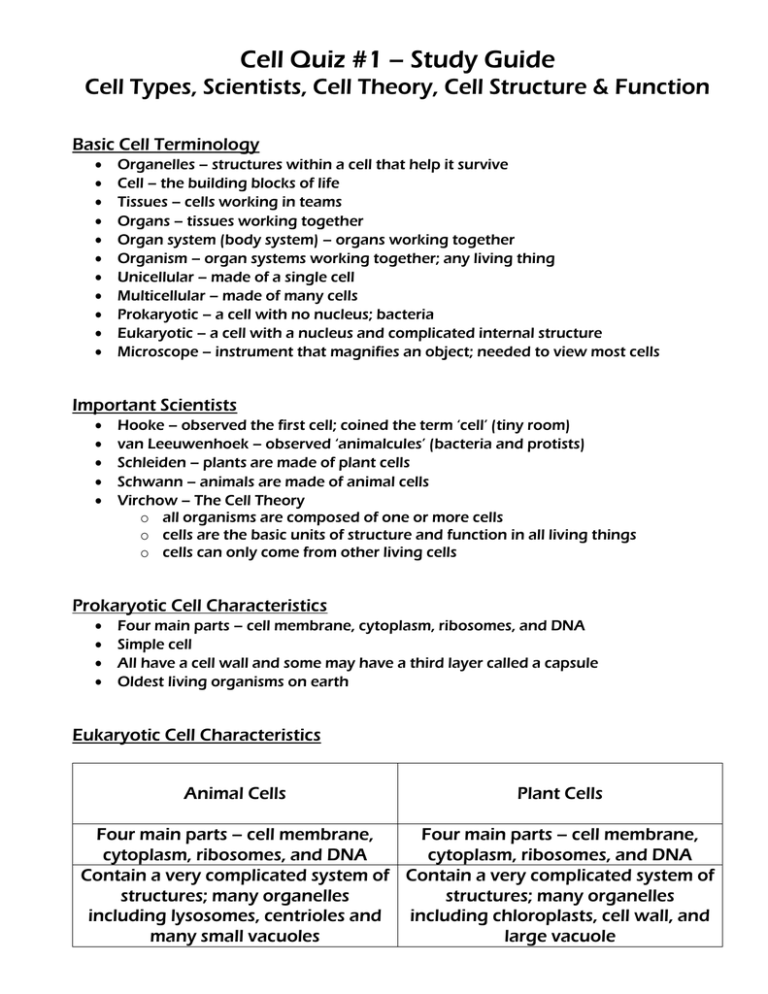
Cell Quiz #1 – Study Guide Cell Types, Scientists, Cell Theory, Cell Structure & Function Basic Cell Terminology Organelles – structures within a cell that help it survive Cell – the building blocks of life Tissues – cells working in teams Organs – tissues working together Organ system (body system) – organs working together Organism – organ systems working together; any living thing Unicellular – made of a single cell Multicellular – made of many cells Prokaryotic – a cell with no nucleus; bacteria Eukaryotic – a cell with a nucleus and complicated internal structure Microscope – instrument that magnifies an object; needed to view most cells Important Scientists Hooke – observed the first cell; coined the term ‘cell’ (tiny room) van Leeuwenhoek – observed ‘animalcules’ (bacteria and protists) Schleiden – plants are made of plant cells Schwann – animals are made of animal cells Virchow – The Cell Theory o all organisms are composed of one or more cells o cells are the basic units of structure and function in all living things o cells can only come from other living cells Prokaryotic Cell Characteristics Four main parts – cell membrane, cytoplasm, ribosomes, and DNA Simple cell All have a cell wall and some may have a third layer called a capsule Oldest living organisms on earth Eukaryotic Cell Characteristics Animal Cells Plant Cells Four main parts – cell membrane, Four main parts – cell membrane, cytoplasm, ribosomes, and DNA cytoplasm, ribosomes, and DNA Contain a very complicated system of Contain a very complicated system of structures; many organelles structures; many organelles including lysosomes, centrioles and including chloroplasts, cell wall, and many small vacuoles large vacuole Cell Structure & Function – Organelles Cell membrane – controls materials going into and out of the cell (all cells) Cell wall – provides strength and support to the cell membrane (plant cells, bacteria) Centrioles – involved in cell division (animal cells) Chloroplasts – organelle where photosynthesis occurs (plant cells) Chromosomes – contain DNA (all cells) Cytoplasm – surround and support the cell’s organelles (all cells) Endoplasmic Reticulum (ER) – internal delivery system of the cell (eukaryotic cells) Golgi bodies (Golgi apparatus ) – external delivery system of the cell (eukaryotic cells) Lysosomes – digest food, wastes, and foreign invaders (animal cells, uncommon in plant cells) Mitochondria – breaks down food to make energy – ATP (eukaryotic cells) Nucleolus – stores materials used to make ribosomes (eukaryotic cells) Nucleus – control center of the cell (eukaryotic cells) Ribosomes – makes proteins (all cells) Vacuole – storage container for water and other liquids (eukaryotic cells) Animal & Plant Cell Diagrams
